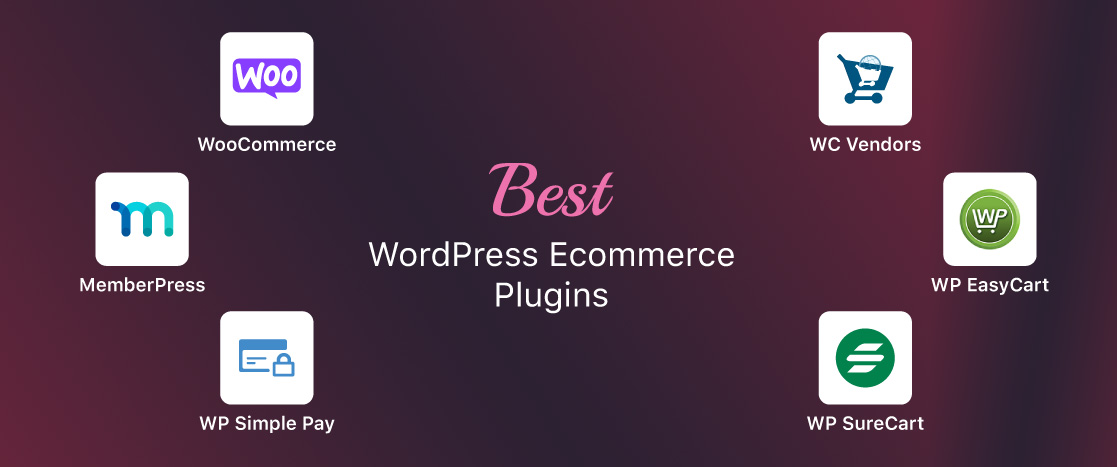![Ecommerce Accounting Guide and Tools for Business Owners [2024]](https://devrims.com/blog/wp-content/uploads/2024/08/ecommerce-accounting-tools-main.jpg)
Ecommerce Accounting Guide and Tools for Business Owners [2024]
In the fast-paced world of online retail, effective ecommerce accounting has become a critical component of business success. As online shopping continues to surge, businesses face unique financial management challenges that necessitate specialized knowledge and advanced tools. This detailed guide aims to illuminate the essentials of ecommerce accounting, offering a thorough exploration of key financial principles, the latest accounting tools available for 2024, and essential best practices for managing finances in the digital age.
With a focus on practical, actionable insights and in-depth analysis, this guide is designed to empower ecommerce business owners with the expertise needed to streamline their accounting processes, overcome financial obstacles, and drive sustainable growth.
What is Ecommerce Accounting?
Ecommerce accounting is the process of managing and recording the financial transactions and financial health of an online retail business. Unlike traditional brick-and-mortar stores, ecommerce businesses face unique accounting challenges due to their digital nature. These challenges include managing multiple sales channels, dealing with various payment methods, handling complex inventory systems, and complying with diverse tax regulations across different jurisdictions.
The essence of ecommerce accounting lies in maintaining accurate records of transactions, managing cash flow, and preparing financial statements. Given the rapid growth of online retail and the increasing complexity of ecommerce operations, having a robust accounting system is essential for ensuring financial stability, making informed business decisions, and staying compliant with tax laws.
Why Is Accounting Important for Any Ecommerce Business?
Ecommerce accounting is a critical and systematic process focused on recording, summarizing, and analyzing the financial transactions of online businesses. This encompasses a broad range of activities including tracking sales revenue, managing various expenses, and ensuring that financial reports are accurate and up-to-date.
Beyond basic bookkeeping, ecommerce accounting is essential for monitoring the overall financial health of a business, supporting informed strategic planning, and ensuring adherence to financial regulations. By effectively managing ecommerce accounting, businesses can reap numerous benefits such as improved cash flow management, precise financial reporting, and enhanced decision-making capabilities.
Maintaining meticulous and accurate financial records allows ecommerce businesses to gain a clearer understanding of their profitability, control their expenditures, and make strategic decisions based on reliable data. This not only aids in driving business growth and sustainability but also provides a solid foundation for navigating the complex financial landscape of online commerce. In essence, robust ecommerce accounting practices are indispensable for achieving financial stability and fostering long-term success in the competitive realm of online retail.
Key Challenges Faced by Ecommerce Business Owners
Ecommerce business owners face a range of accounting challenges that can complicate financial management. One of the primary challenges is inventory management, which involves tracking stock levels across multiple sales channels and platforms. Inaccurate inventory tracking can lead to issues such as stockouts, overstocking, and discrepancies between physical and recorded inventory levels.
Tax compliance is another significant challenge, especially for businesses operating in multiple regions with varying tax regulations. Ecommerce businesses must navigate complex sales tax rules, manage tax rates for different jurisdictions, and ensure timely and accurate tax filings.
Additionally, handling multi-currency transactions poses a challenge for businesses that operate internationally. Managing exchange rates, reconciling currency fluctuations, and ensuring accurate financial reporting in multiple currencies requires careful attention and specialized accounting practices.
Objectives of the Guide
The objectives of this guide are to deliver a thorough understanding of ecommerce accounting by addressing three key areas. Firstly, it seeks to explain fundamental accounting principles crucial for online businesses, ensuring that readers grasp essential concepts such as financial statements and bookkeeping methods. Secondly, the guide aims to explore and evaluate top accounting tools for 2024, highlighting their features and benefits to help businesses select the most suitable software for their needs.
Lastly, it provides practical insights into best practices and emerging trends, offering actionable advice on managing finances effectively and preparing for future developments. By focusing on these objectives, the guide is designed to equip ecommerce business owners with the knowledge and tools necessary to optimize their financial management, enhance decision-making, and achieve long-term success in the competitive online marketplace.
Provide a Thorough Understanding of Ecommerce Accounting
The first objective is to lay a solid foundation by explaining the fundamental concepts and principles of ecommerce accounting. This section delves into the core components of ecommerce financial management, including the significance of maintaining accurate financial records, understanding different types of financial statements, and grasping key accounting principles.
By elucidating these concepts, the guide aims to equip business owners with a clear understanding of how effective accounting practices contribute to their overall business health. This includes a detailed examination of income statements, balance sheets, and cash flow statements, which are crucial for assessing profitability, financial stability, and liquidity.
Additionally, the guide will cover fundamental accounting principles such as double-entry bookkeeping, accrual versus cash accounting, and the common challenges faced in ecommerce accounting. This foundational knowledge is essential for making informed decisions and implementing effective financial strategies.
Introduce and Evaluate Essential Tools
The second objective focuses on reviewing and analyzing the top accounting tools available for ecommerce businesses in 2024. This section will provide an in-depth evaluation of various accounting software solutions, highlighting their features, benefits, and limitations.
The guide will cover prominent tools such as QuickBooks Online, Xero, FreshBooks, Zoho Books, and NetSuite. For each tool, the guide will explore key functionalities tailored to ecommerce needs, such as integration capabilities with ecommerce platforms, automation features, reporting and analytics options, and scalability.
By offering a detailed analysis of these tools, the guide aims to help business owners select the best accounting software that aligns with their specific needs, budget, and business size. Understanding the strengths and weaknesses of each tool will enable businesses to make informed choices and optimize their financial management processes.
Offer Practical Insights into Best Practices
The third objective is to provide actionable advice on best practices for managing ecommerce finances. This section will cover essential aspects such as tax compliance, inventory management, and fraud prevention. It will offer practical tips and strategies for maintaining accurate financial records, ensuring timely tax filings, and implementing effective inventory tracking systems.
Additionally, the guide will address methods for safeguarding financial data from fraud and security breaches. By incorporating these best practices, business owners can enhance their financial operations, reduce risks, and ensure regulatory compliance. The goal is to provide practical, real-world advice that can be readily applied to improve financial management and drive business success.
Discuss Future Trends in Ecommerce Accounting
The final objective is to explore emerging technologies and trends shaping the future of ecommerce accounting. This section will examine advancements such as artificial intelligence (AI), machine learning, and blockchain technology, and their impact on financial management. The guide will discuss how these technologies can enhance financial operations, improve accuracy, and provide valuable insights.
Additionally, it will address trends such as increased integration with financial ecosystems and evolving regulatory requirements. By staying informed about these future trends, business owners can adapt to changes, leverage new technologies, and maintain a competitive edge in the ever-evolving ecommerce landscape. The goal is to help businesses anticipate and prepare for future developments, ensuring they remain agile and resilient in a dynamic financial environment.
Overall, this guide aims to provide a well-rounded, detailed resource that covers the essentials of ecommerce accounting, evaluates top tools, offers practical advice, and explores future trends. By achieving these objectives, the guide seeks to empower ecommerce business owners with the knowledge and tools necessary to manage their finances effectively and achieve long-term success.
Essentials of Ecommerce Accounting
A foundational guide to understanding the core principles and practices critical for managing the financial aspects of an online business. This section delves into key accounting concepts and financial statements that are vital for ecommerce operations. It covers the importance of maintaining accurate records of sales, expenses, and transactions, which are essential for assessing the financial health of the business. Key financial statements such as income statements, balance sheets, and cash flow statements are explained to help business owners track profitability, liquidity, and overall financial stability.
Additionally, this section explores fundamental accounting principles like double-entry bookkeeping and the differences between accrual and cash accounting. It highlights common challenges faced by ecommerce businesses, including inventory management, tax compliance, and handling multi-currency transactions. By understanding these essential elements, business owners can ensure their financial records are precise and reliable, which supports effective decision-making, regulatory compliance, and strategic planning. This comprehensive overview sets the stage for more advanced discussions on accounting tools and best practices in ecommerce financial management.
Understanding Ecommerce Financial Statements
Ecommerce financial statements are crucial for evaluating the financial performance and health of a business. These statements include the income statement, balance sheet, and cash flow statement.
The income statement, also known as the profit and loss statement, summarizes revenues, costs, and expenses over a specific period. For ecommerce businesses, this statement includes details such as sales revenue, cost of goods sold (COGS), operating expenses, and net profit. Tracking these elements allows businesses to assess profitability, identify cost-saving opportunities, and evaluate the effectiveness of pricing and marketing strategies.
The balance sheet provides a snapshot of the business’s financial position at a given point in time. It lists assets, liabilities, and equity, offering insights into what the business owns and owes. For ecommerce businesses, assets may include inventory, accounts receivable, and cash, while liabilities could consist of loans, accounts payable, and other obligations. Equity represents the owner’s investment in the business. Regularly reviewing the balance sheet helps in understanding liquidity, financial stability, and the overall health of the business.
The cash flow statement tracks the movement of cash in and out of the business. It categorizes cash flows into operating, investing, and financing activities. This statement is essential for managing liquidity and ensuring that the business has sufficient cash to cover its operational needs and investments. For ecommerce businesses, the cash flow statement helps monitor the impact of seasonal sales fluctuations, manage inventory purchases, and plan for future expenditures.
Fundamental Accounting Principles
Understanding fundamental accounting principles is essential for maintaining accurate financial records. One of the core principles is double-entry bookkeeping, which ensures that every financial transaction affects at least two accounts.
This system maintains the accounting equation: Assets = Liabilities + Equity.
Double-entry bookkeeping provides a balanced view of financial transactions and helps prevent errors by ensuring that debits and credits are always equal.
Another critical principle is the distinction between accrual and cash accounting. Accrual accounting recognizes revenues and expenses when they occur, regardless of when cash is received or paid. This method provides a more accurate picture of financial performance by recording transactions when they happen. For example, sales made on credit are recorded as revenue when the sale occurs, not when payment is received. Cash accounting, on the other hand, records transactions only when cash changes hands. While simpler, this method may not accurately reflect the business’s financial position if there are significant receivables or payables.
Common Accounting Challenges in Ecommerce
Ecommerce businesses encounter specific accounting challenges that require tailored solutions. Inventory management is a major challenge, as it involves tracking stock levels across various sales channels and platforms. Accurate inventory tracking is essential to prevent issues such as stockouts, overstocking, and discrepancies between physical and recorded inventory levels. Integrating inventory management with accounting systems can streamline this process and ensure that inventory data is consistently updated.
Tax compliance is another significant challenge for ecommerce businesses. Sales tax regulations can be complex, with varying rules and rates depending on the jurisdiction. Ecommerce businesses must accurately track sales, manage tax rates, and ensure timely tax filings. Utilizing tax compliance software can automate these processes, reducing the risk of errors and ensuring compliance with tax laws.
Handling multi-currency transactions presents a challenge for businesses operating internationally. Managing exchange rates, reconciling currency fluctuations, and ensuring accurate financial reporting in multiple currencies requires careful attention. Choosing accounting software that supports multi-currency transactions and provides real-time exchange rates can simplify this process and improve financial accuracy.
Top 5 Ecommerce Accounting Tools for 2024
A detailed evaluation of leading accounting software solutions specifically designed for online businesses. This section reviews the most effective tools available in 2024, highlighting their key features, benefits, and limitations. Each tool is assessed for its suitability in managing e-commerce finances, focusing on aspects such as integration with ecommerce platforms, automation capabilities, and reporting functionalities.
By examining popular solutions like QuickBooks Online, Xero, FreshBooks, Zoho Books, and NetSuite, this section aims to help business owners choose the best accounting tool that fits their specific needs. It covers essential features such as real-time financial reporting, scalability, ease of use, and compatibility with various payment gateways and ecommerce systems. Understanding the strengths and weaknesses of these tools enables businesses to make informed decisions, optimize their financial management, and streamline accounting processes. This overview provides valuable insights into which tools can best support an ecommerce business’s financial operations and growth in the competitive landscape of 2024.
QuickBooks Online
QuickBooks Online is one of the leading accounting solutions available for ecommerce businesses. Known for its comprehensive features and user-friendly interface, QuickBooks Online offers automated bookkeeping, expense tracking, and invoicing capabilities. It integrates seamlessly with a variety of ecommerce platforms, including Shopify, WooCommerce, and Magento, facilitating smooth financial management across different sales channels.
One of the key advantages of QuickBooks Online is its ability to automate many aspects of bookkeeping. Automated data entry and reconciliation reduce the risk of errors and save time for business owners. The software provides detailed financial reports that help monitor business performance and make informed decisions. However, QuickBooks Online has some limitations in advanced inventory management and its pricing structure may not be suitable for all businesses. Businesses with complex inventory needs may require additional solutions or integrations.
Xero
Xero is another popular accounting tool that offers a user-friendly interface and real-time financial tracking. It includes features such as invoicing, expense management, and bank reconciliation. Xero integrates with several ecommerce platforms, enhancing its utility for online retailers.
Xero’s standout features include its real-time financial data and collaboration capabilities. The software allows multiple users to access and work on financial data simultaneously, which can be particularly beneficial for businesses with distributed teams. Xero also offers strong reporting and analytics tools, providing valuable insights into financial performance. However, Xero’s limited support for multi-currency accounting and the learning curve associated with advanced features may pose challenges for some users. Businesses with extensive international operations may need to consider additional tools or integrations to address multi-currency needs.
FreshBooks
FreshBooks is tailored for small to medium-sized ecommerce businesses, offering intuitive invoicing and expense tracking features. It integrates with various ecommerce platforms, ensuring accurate financial data capture and management.
FreshBooks is known for its user-friendly design and excellent customer support. Its features are well-suited for smaller ecommerce businesses, providing easy invoicing and expense tracking capabilities. The software’s simplicity and ease of use make it an attractive option for businesses seeking a straightforward accounting solution. However, FreshBooks’ basic inventory management features and limited third-party integrations may not be sufficient for businesses with more complex needs. Larger businesses or those requiring advanced inventory management may need to explore additional solutions.
Zoho Books
Zoho Books provides a comprehensive suite of accounting features designed to meet the needs of ecommerce businesses. It includes robust automation, invoicing, and financial reporting capabilities. Integration with Zoho’s other business tools, such as CRM and project management, adds to its functionality and versatility.
The software’s automation features reduce manual effort and improve accuracy in financial management. Zoho Books offers strong reporting and analytics capabilities, providing valuable insights into business performance and financial health. However, the complexity of the software for new users and the higher pricing for premium features may be considerations for some businesses. New users may require additional training or support to fully utilize Zoho Books’ advanced features.
NetSuite
NetSuite is an enterprise-level accounting solution that offers a comprehensive suite of features for large ecommerce businesses. It includes integrated ERP and accounting functionalities, making it suitable for businesses with complex financial management needs.
NetSuite’s advantages include its scalability and customization options. The software’s integrated ERP capabilities provide a unified solution for managing various aspects of the business, including finance, inventory, and customer relationships. NetSuite’s advanced features support large-scale operations and complex financial management. However, the high cost of implementation and the complexity of setup and customization may be a consideration for some businesses. Smaller businesses or those with simpler accounting needs may find NetSuite’s pricing and complexity challenging.
Key Features to Look for in Ecommerce Accounting Tools
Essential functionalities that make accounting software particularly effective for online businesses. This section emphasizes the importance of integration capabilities, which ensure seamless connectivity with ecommerce platforms and payment gateways, allowing for accurate and efficient financial data management. Automation and efficiency are critical features, including automated data entry, reconciliation, and invoicing, which reduce manual effort and minimize errors.
Customizable reporting and analytics are crucial for gaining insights into financial performance and making informed decisions. Look for tools that offer real-time data visualization and the ability to generate tailored financial reports. Scalability and flexibility are also important, as these features support business growth and evolving needs by handling increased transaction volumes and multi-channel sales. Effective ecommerce accounting tools should adapt to the changing requirements of a growing business, offering customizable user permissions and the capability to integrate with other business systems. By focusing on these key features, businesses can select tools that enhance financial management, streamline operations, and support long-term success in the dynamic ecommerce environment.
Integration Capabilities
When selecting accounting tools for ecommerce, integration capabilities are essential for ensuring seamless financial management. Effective integration with ecommerce platforms and payment gateways allows for the accurate capture and synchronization of financial data. Look for tools that provide robust API access and support for various third-party integrations. This capability minimizes manual data entry, reduces errors, and provides a cohesive view of your financial information. By enabling smooth data flow between different systems, integrated accounting tools streamline financial operations and enhance overall efficiency, making it easier to manage transactions and maintain up-to-date records.
Automation and Efficiency
Automation is a crucial feature in modern accounting tools, significantly improving efficiency and reducing manual tasks. Choose tools that offer automated data entry, reconciliation, and invoicing to streamline your accounting processes. Workflow automation for tasks such as expense tracking and financial reporting ensures that data is consistently updated and accurate, saving valuable time and minimizing the risk of errors. Automated features not only enhance productivity but also ensure reliable financial data management, allowing businesses to focus on growth and strategic decision-making while maintaining accurate financial records.
Reporting and Analytics
Comprehensive reporting and analytics capabilities are vital for effective financial management. Select accounting tools that offer customizable financial reports and real-time data visualization to gain valuable insights into business performance. Tools with strong reporting features enable you to generate tailored reports that reflect your specific needs, providing a clear view of key financial metrics. Real-time data visualization ensures that you have up-to-date information for informed decision-making and timely adjustments. By leveraging advanced reporting and analytics, businesses can better understand their financial health and make strategic decisions based on accurate, actionable data.
Scalability and Flexibility
As your ecommerce business evolves, it’s important to choose accounting tools that offer scalability and flexibility. Look for solutions that can accommodate growing operations and changing needs, such as multi-channel sales support and customizable user permissions. Scalable tools are designed to handle increasing transaction volumes and adapt to your business’s growth, ensuring that your accounting system remains effective over time. Flexibility in features and integration options allows you to tailor the tool to your specific requirements, helping you manage your finances efficiently as your business expands and diversifies.
Best Practices for Ecommerce Accounting
Strategies and methodologies for effective financial management in online businesses. This section emphasizes the importance of regular financial audits to ensure accuracy and compliance, providing tips for conducting thorough internal reviews and addressing discrepancies. Tax compliance and planning are crucial, and businesses should understand sales tax regulations and prepare diligently for tax filings to maximize deductions and avoid penalties.
Effective inventory management is another key practice, involving strategies for accurate tracking of stock levels, preventing discrepancies, and utilizing inventory management tools to streamline operations. Additionally, fraud prevention and security measures are vital to protect financial data from potential threats. Implementing robust security protocols and recognizing signs of fraud can safeguard against financial losses and ensure the integrity of financial information. By adhering to these best practices, ecommerce businesses can maintain precise financial records, ensure regulatory compliance, and protect their operations from financial risks. These practices provide a solid foundation for managing finances effectively, supporting informed decision-making, and driving long-term success in the competitive world of online retail.
Regular Financial Audits
Conducting regular financial audits is essential for maintaining accurate records and ensuring compliance. Periodic reviews help detect discrepancies and verify the accuracy of financial statements. Audits, whether performed by in-house staff or external experts, identify potential issues and provide insights into financial health. A structured audit process helps address problems promptly, ensuring financial integrity and supporting ongoing business success. Regular audits are crucial for detecting errors, ensuring regulatory compliance, and providing a clear view of your financial status, which helps maintain trust and accountability within your ecommerce operations.
Tax Compliance and Planning
Tax compliance is a vital aspect of ecommerce accounting, requiring vigilance with regulations and deadlines. Maintain accurate records of sales, expenses, and deductions to facilitate smooth tax filings. Utilize tax compliance software to automate calculations and ensure timely submissions. Effective tax planning involves understanding available deductions and credits, optimizing tax strategies, and preparing for changes in regulations. Staying informed about tax laws and leveraging software tools can streamline compliance, reduce the risk of errors, and help manage tax liabilities effectively, contributing to the financial health of your business.
Effective Inventory Management
Accurate inventory management is crucial for avoiding stock outs or overstocking in ecommerce. Implement tracking tools and forecasting methods to manage stock levels efficiently. Integrating inventory management with accounting systems ensures real-time updates and accurate stock data. Strategies like just-in-time inventory and automated reorder points help maintain optimal stock levels and reduce disruptions. Effective inventory management supports smooth operations and ensures that your business can meet customer demand without overextending resources, contributing to overall operational efficiency and financial stability.
Fraud Prevention and Security
Protecting financial data from fraud and security breaches is essential for ecommerce businesses. Implement strong security measures such as encryption, secure access controls, and regular security audits to safeguard financial information. Monitor transactions for unusual activity and use fraud detection tools to mitigate risks. Educate staff on data security best practices and establish procedures for handling and reporting suspicious activities. Ensuring robust fraud prevention and security protocols helps protect sensitive financial data and maintain the integrity of your ecommerce operations.
Future Trends in Ecommerce Accounting
Explore emerging developments and innovations poised to shape the future of financial management for online businesses. This section delves into how technologies like artificial intelligence (AI) and machine learning are transforming accounting practices by automating complex processes, enhancing accuracy, and providing advanced data analytics. Blockchain technology is also highlighted for its potential to secure financial transactions and improve transparency.
Integration with broader financial ecosystems is a key trend, with advancements enabling better collaboration between ecommerce platforms, banks, and financial institutions. This integration facilitates smoother data flow and more comprehensive financial oversight. Additionally, evolving regulatory landscapes are examined, focusing on upcoming changes in tax laws and accounting standards that businesses must adapt to. Staying ahead of these trends allows ecommerce businesses to leverage new technologies, ensure compliance, and remain competitive. By anticipating and preparing for these future developments, businesses can optimize their accounting practices, improve financial management, and achieve sustained growth in the dynamic ecommerce environment.
Emerging Technologies
The integration of emerging technologies is transforming ecommerce accounting. Artificial intelligence (AI) and machine learning are enhancing financial management by providing predictive analytics, automating decision-making processes, and improving fraud detection. AI-driven tools can analyze large volumes of data to identify patterns and trends, offering valuable insights for strategic planning. Blockchain technology is also making an impact by providing increased transparency and security in financial transactions through decentralized ledger systems.
Integration with Financial Ecosystems
Future trends in ecommerce accounting include greater integration with financial ecosystems. Collaboration with banks and financial institutions is becoming more common, enabling direct integration with banking systems for streamlined financial operations. Enhanced cross-platform data integration improves data sharing and collaboration across various systems, providing a more cohesive approach to financial management. These developments support more efficient and accurate financial processes, benefiting ecommerce businesses in managing their finances.
Evolving Regulatory Landscape
The regulatory landscape for ecommerce accounting is continuously evolving, with changes in tax laws and accounting standards affecting businesses. Staying updated on upcoming regulatory changes is essential for compliance. Preparing for regulatory updates involves understanding new requirements, implementing necessary changes to accounting practices, and ensuring ongoing compliance. Businesses should monitor industry developments and seek professional advice to navigate regulatory changes effectively.
Conclusion
This guide has provided a detailed exploration of ecommerce accounting, covering essential principles, top tools for 2024, and best practices. Understanding the fundamentals of ecommerce accounting, including financial statements, accounting principles, and common challenges, is crucial for managing finances effectively. The review of top accounting tools highlights their features, benefits, and limitations, offering valuable insights for selecting the right solution for your business.
Choosing the right accounting tool involves evaluating integration capabilities, automation features, and scalability. Businesses should select tools that align with their specific needs, support efficient financial management, and provide valuable insights through reporting and analytics. Staying informed about industry trends and technological advancements is essential for optimizing accounting practices and ensuring compliance with evolving regulations.
By leveraging robust ecommerce accounting strategies and tools, business owners can enhance financial management, support growth, and achieve long-term success in the competitive ecommerce landscape.





